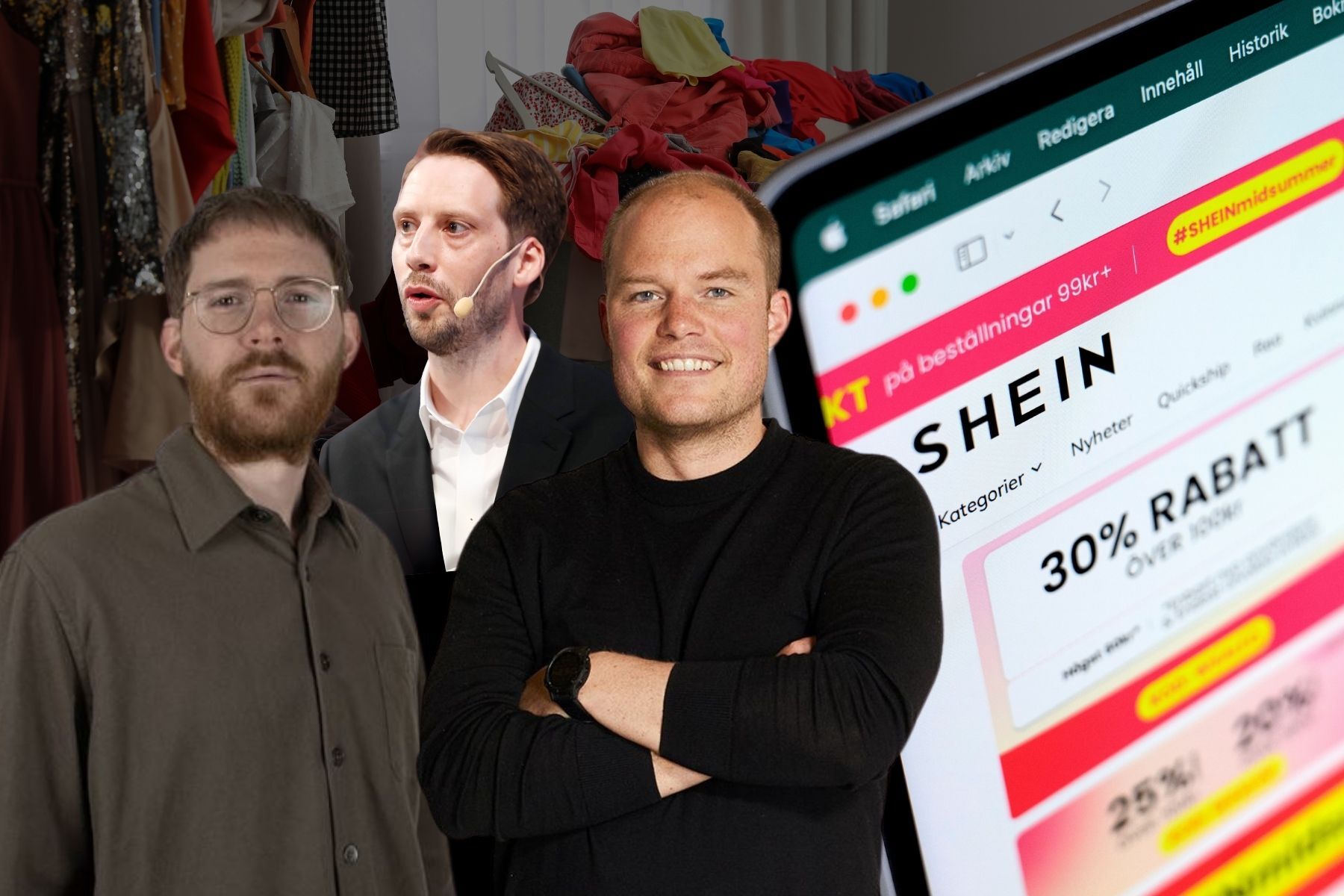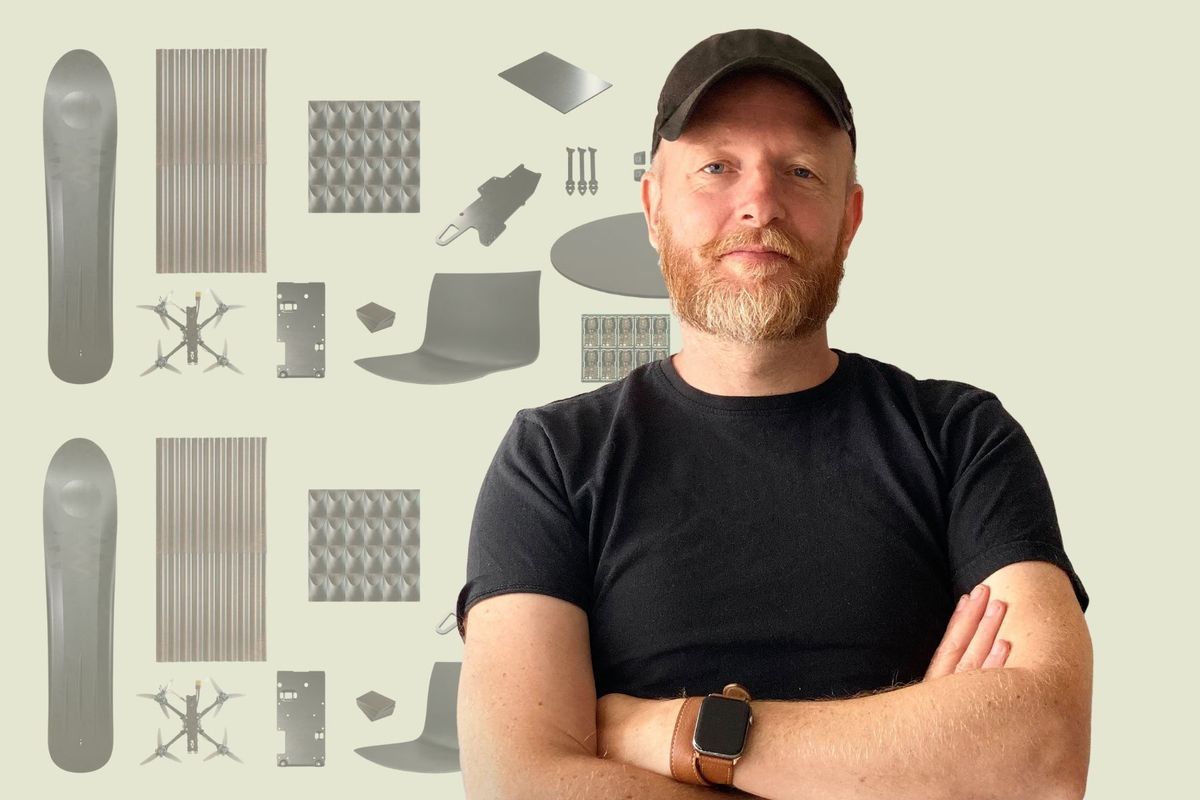H&M-owned Sellpy still peddling Shein clothes – as other second-hand platforms stop

Several European second-hand platforms, including Vestiaire Collective and Inimini, have decided to stop selling clothes from controversial fast fashion giant Shein. <br><br>But Sellpy, owned by Swedish fashion brand H&M, and Plick, a Swedish platform with heavy investment from Nordic media giant Schibsted, say they will continue to list garments, an Impact Loop investigation reveals.


Global media has been awash with reports about Shein’s environmental footprint in recent months, with allegations of hazardous chemicals in its production process and returned items being burned.
Several European second-hand platforms have responded by banning the sale of Shein clothing.
Paris-headquartered Vestiaire Collective, which operates in 70 countries worldwide, has this bold statement on its website: “We're committed to ending fast fashion. That's why we're banning the biggest culprits from being bought, sold, or listed.”
The company also refuses to sell dozens of other labels it considers to be fuelling “a system that supports overconsumption and overproduction.”
In Sweden, Inimini, which specialises in second-hand children's clothes, stopped listing items from Shein and Chinese platform Temu in October.
"Initially, we resold Shein and Temu garments, but we always noticed that the majority of the items were in poor condition. Because of this, we sorted out a lot of them anyway, but the ones that seemed fine, we sold," co-founder Josefin Runquist tells Impact Loop.
The turning point came when discussions began about the clothes potentially containing hormone-disrupting substances, she explains.
"That’s when we felt, ‘Oh my God, you can’t put this on a child who can’t make their own choice.’"
Toxic chemicals and alarming reports
An investigation by Greenpeace Germany last year found illegal and dangerous chemicals in Shein's clothes. Meanwhile, a recent probe by Sweden’s biggest tabloid, Aftonbladet, revealed that returned items often end up in Chilean dumps, only to be smuggled into Bolivia by criminal networks.
Last week, Sweden's climate minister, Romina Pourmokhtari, called for an import ban on Shein goods, and Prime Minister Ulf Kristersson recently accused Shein of "systematic rule-breaking."
Swedish-born platforms Sellpy and Plick still selling Shein
Despite the criticism in Sweden, Stockholm-based second-hand platform Sellpy – with Swedish fashion giant H&M as its majority owner – is still listing Shein items.
Sellpy has over SEK 1.1 billion (€95 million) in annual sales and has become something of a poster child for circular commerce. On the company's "About Us" page, it proudly states: "Sellpy was born from the idea of making it possible for everyone to live circularly." Alongside Sweden, it operates in 24 markets across Europe.
"Our aim is to keep items in the circular economy as long as possible,” Sellpy's PR representative Andrea Maricic tells Impact Loop. “That’s why we accept a wide range of goods from our sellers and strive to sell as much as possible of what is sent in—our goal being to reduce waste and promote reuse."
She highlights that customers can filter the types of brands and products they choose from:
"Using our filter feature, customers can exclude certain brands and search for specific ones they’re interested in. This way, they can easily navigate the platform and make choices that align with their personal preferences," she says.
H&M – Sellpy’s biggest investor – declined to comment in detail on Sellpy’s decision when contacted by Impact Loop.
"Generally speaking, we believe it’s better for garments to have the chance to be reused rather than discarded. However, Sellpy is responsible for deciding which brands they sell," says H&M’s press officer Sara Hampus.
Plick, another resale platform with more than 500,000 users in Sweden, has also decided to keep selling Shein products.
Like Sellpy, Plick has high-profile backing from a heavyweight Nordic brand. Schibsted, a major media, real estate, and mobility company, invested in the platform in 2021. At the time, the company said Plick’s vision complemented its own “purpose of contributing to a sustainable world by giving people opportunities and helping them make smarter choices.”
Schibsted did not immediately respond to Impact Loop’s request for comment.
Plick’s founder and CEO, Jimmy Heibert, admits to Impact Loop that he thinks Shein's new production practices are "crap for everyone involved," but argues that reselling second-hand Shein items is less problematic.
“Our focus is on ensuring that garments already produced can be used two or three more times instead of being thrown away,” he says.
Heibert explains that his company does not take a stand against specific brands, whether it’s Shein, high street brands like Zara, or more high-end labels like Sweden’s Filippa K.
He views some competitors' distancing themselves from Shein as symbolic politics.
“The big challenge lies in the massive import volumes, but it’s not up to us to solve that issue. The risk of harmful substances exists with many brands, even if there’s a difference in quality.”
However, he says the company is aware of ongoing debates and will “continuously evaluate” its policies “regardless of media attention or not.”
Vinted, Europe’s fastest-growing second-hand platform with 105 million registered users, is also continuing to sell Shein products. Impact Loop has contacted the company for its strategy but has not yet received a response.
Industry divided on second-hand Shein sales
So, is it acceptable for second-hand companies with a sustainability focus to sell clothing from companies like Shein and Temu?
This question isn’t new, says Martin Kits, head of public affairs at the Swedish Trade Federation (Svensk Handel).
"What you need to be aware of when choosing to handle these garments is that numerous studies show they can contain chemicals and carcinogenic substances," he tells Impact Loop.
According to him, the issue can be viewed from two perspectives:
"On the one hand, there’s an awareness that these garments aren’t regulated and may contain harmful substances and heavy metals. On the other hand, if they’re used as second-hand items, it’s a slightly less damaging choice since most of these garments are otherwise only worn once or twice before being thrown away."
When asked how thinks second-hand retailers in Europe should respond to this ethical dilemma, Kits says he nevertheless believes in company freedom.
"I don’t want to make a recommendation on how to act—that’s a decision each company must make."
Additional research and editing by Maddy Savage
Get full access to Europe's new platform for impact news
- Quality journalism, interviews, investor profiles and deep-dives
- Daily newsletter with top stories, latest funding rounds and roundup to keep you in the loop
Keep reading – get in the loop!
- Håll dig i loopen med vårt dagliga nyhetsbrev (gratis!)
- Full tillgång till daglig kvalitetsjournalistik med allt du behöver veta inom impact
- Affärsnätverk för entreprenörer och investerare med månatliga meetups
Fortsätt läsa – kom in i loopen!
- Håll dig i loopen med vårt dagliga nyhetsbrev (gratis)!
- Full tillgång till daglig kvalitetsjournalistik med allt du behöver veta inom impact
- Affärsnätverk för entreprenörer och investerare med månatliga meetups








